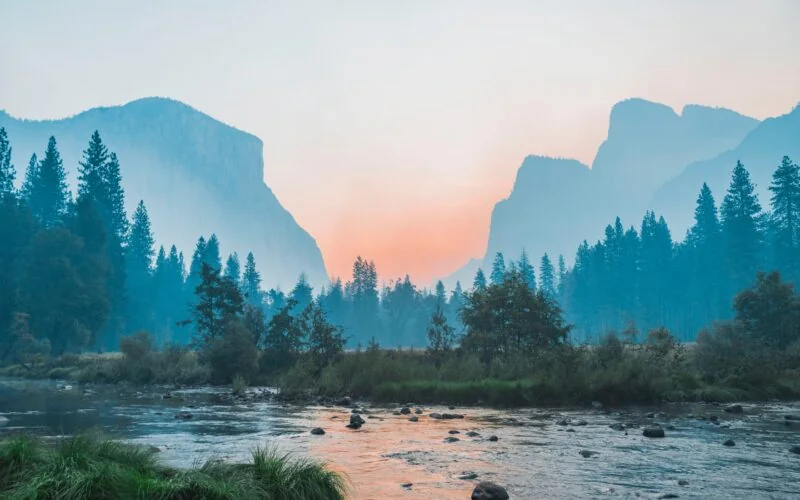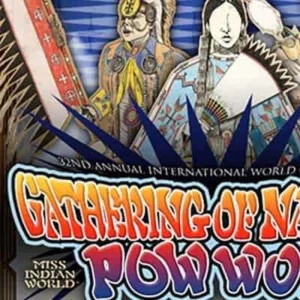For thousands of years, humans have lived as one with nature, creating a meaningful and essential connection with the land, sea, and sky. Historically, Native Americans, in particular, have had an intertwining relationship with the universe. This remains accurate, as their bond with nature permeates their cultural identity. This relationship with the environment is best captured by the Native practice of reclaiming traditional ecological knowledge (TEK) in today’s modern world.
Continue reading to understand what traditional ecological knowledge truly means and how it is relevant today in the Native culture regarding climate change and environmental degradation.
What is Traditional Ecological Knowledge?
Traditional Ecological Knowledge (TEK) is an ancient understanding of land management techniques and sustainable agricultural practices developed by Indigenous peoples over centuries. It also refers to a collective body of knowledge and practices passed down through generations of Indigenous people based on their relationship with their natural environment. It includes concepts about the land, its resources, plants, animals, ecosystems, and weather patterns.
You may have heard or read the terms “Indigenous Knowledge” or “Native Science,” which are synonymous with TEK. And according to an article from Yale University on this topic, “This realm has long been studied by disciplines under headings such as ethno-biology, ethno-ornithology, and biocultural diversity. But it has gotten more attention from mainstream scientists lately because of efforts better to understand the world in the face of climate change and the accelerating loss of biodiversity.”
This type of knowledge, for example, about a particular area of land, would have been passed down over thousands of years by Native communities with the sole purpose of surviving. Not only was survival the key regarding Traditional Ecological Knowledge in the past, but it also continues to be the focus today. With climate change and environmental degradation on the rise, we must look to TEK as a source of wisdom for protecting our planet.
The importance of TEK in today's world
Check the news at any point, and you will learn about some form of climate destruction worldwide. With rapidly changing climates and environmental degradation due to human activity, it has become increasingly important to reclaim Traditional Ecological Knowledge to better protect our planet.
By learning from our Native ancestors’ practices, such as water conservation techniques or sustainable land management strategies, we can understand the interconnectedness between humans and nature. TEK also provides insight into how we can reduce our environmental impact while still meeting our needs—a key factor in mitigating climate change.
It is estimated that “while Native peoples only comprise some 4 or 5 percent of the world’s population, they use almost a quarter of the world’s land surface and manage 11 percent of its forests.”
Gleb Raygorodetsky, a researcher with the POLIS Project on Ecological Governance at the University of Victoria, states, “In doing so, they maintain 80 percent of the planet’s biodiversity in, or adjacent to, 85 percent of the world’s protected areas.”
This proves the essential role that Indigenous communities play in helping pass down and share TEK with others, as many are experts.
Reclaiming Traditional Ecological Knowledge
It is up to all of us to reclaim Traditional Ecological Knowledge so that it can be used for future generations. Indigenous peoples, researchers, anthropologists, ecologists, and the list goes on, are underway to preserve and revitalize TEK. Local agencies, universities, and non-profit organizations create mutually beneficial relationships with Native communities to work together toward a common goal.
Several influential organizations are dedicated to promoting TEK, including but not limited to
- Ecological Society of America
- IPinCH
- National Congress of American Indians, Policy Research Center
- Native American Fish and Wildlife Society
- Seeds of Native Health
- United Nations
- Wildlife Society
- World Conservation Congress
- World Intellectual Property Organization
Individuals and groups worldwide work hard to ensure that this ancient wisdom is not lost forever but preserved for future generations so that we may stop climate change and environmental degradation in its tracks.
We must continue to recognize the importance of Traditional Ecological Knowledge in protecting our planet from climate change and environmental degradation. By taking inspiration from our ancestors’ sacred practices related to land management, we can learn how best to interact with nature in ways that respect humanity and the environment. Through initiatives like language revitalization programs or cultural exchange programs between Native American communities, we can help ensure that traditional ecological knowledge is not lost but instead passed down from generation to generation so that it can continue providing us with valuable insight into how best to protect our planet for years to come.




Diana SingingHorse
says:I tried to watch the new Peter Pan ad with the Native actress but it wouldn’t play. What’s the story??
Paul G
says:The movie doesn’t come out until late April.